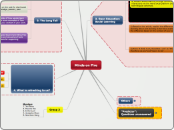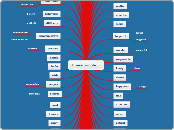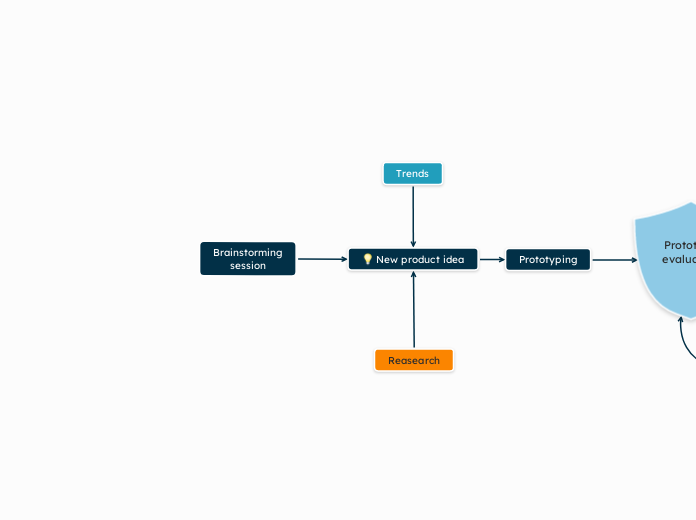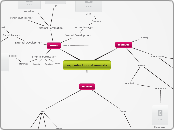Dissertation Title
Higher Education Outcomes
Mission Statements
Colelge mission statmeents often emphasize the development of both cognitive and emotional competencies. Such statements commonly include assertaions about personal development and preparation for life beyond the classroom. (Feldman, Aper 2011)
Non-Cognitive and Co-Curricular
The emotional intelligence field provides a new approach to better understand insitutional developmental goasl associated with co-curricular programs as complements of more traditional academic programs. (Feldman, Aper 2011)
There is a long history of theory and research that have identified non-cognitive outcomes that are desirable and prepare students for careers and life beyond college. This underscores the importance of a college curriculum that supports emotional intelligence concepts. (Feldman, Aper 2011)
Outstanding Leader Performance (Boyatzis, Stubbs 2002)
We need to adopt the challenga of developing the whole person so that it is fundamental to our objectives
cognitive or intellectual ability, self-managment or intrapersonal abilities, and relationship management of interpersonal abilities
3 clusters
Tutor Benefits
Cognitive
Roscoe and Chi
help tutors metacognitively reflect upon their own expertise and comprehension, and constructively build upon their prior knowledge by generating inferences, integrating ideas across topics and domains, adn repairing errors
a more nuanced undesrstanding of course content and a variety of methods to help students learn about content and problem solving skills
Bargh and Schul
increase in mastery and the speed and mastery of related knowledge
benefit of tutoring for the tutors includes cognitive ability
Benware and Deci
students who learned with the purpose of teaching others were more actively engaged with the information
Children develop intellectually not be being challenged by someone ahead of them, but by helping somebody behind him, by being put into the tutor-helper role
tutors benefit in educational/subject areas
tutors report better academic achievment and reapplying concepts in their own lives and developing connections
Astin
Time spent in academic endeavors is positively correlated to achievement
Terenzini, Pascarella, et. al.
Students out of class experiences are influential on academic and intellectual
Student involvement in the learning process and enhances content mastery and conceptual content
Hodgson, Bearman, et.al.
use higher order thinking tasks to retain information
active component of peer learning is most valuable
Peer Culture/ Peer Group
MacKenzie
a students colleagues are the most powerful and most important resource
Antonio
peer group as a reference group or a social group
Renn and Arnold
influence of peer culture: encompasses the forces, and praicesses that shape individual and collective life on campus in terms of identity, group membershipl acceptable discourse, and desirable behaviors
Future Research
detailed contextualized examination of the itneractions the tutor experiences and the impact on their academic socialization
Definition
Cohen
a learning and teaching experience that together form a social process
Hock
University level tutors can be taught to assess the students approach, gain the students commitment, describe learning strategies, model strategies, check the students understanding, and set the expectations for independent practice
tutoring is an active learning process with tutors acting as role models and facilitators of the learning process.
Collaborative learning mode focuses on learning as a cooperative undertaking and addresses the processes as well as the outcome.
those of the same societal group or social standing education one another when one peer has more expertise or knowledge
Emotional
Dvorak (2001)
tutors become better communicators, more empathetic, see themselves as teachers and leaders, gained experience faciliating small groups of students, life-fulfilling, altruistic motives, giving back to the community
Miller and MacGilchrist
personal development of the participants who learned the skills to pass ifno out to individuals and groups, could not have taken place without the development of their own self-esteem
psychosocial peer led programs draw on social learning theory and social innoculation theory
Gosser, Kampmeier, et.al.
tutors must develop new communication skills, effective team-building tactics, an understanding of the ways in which people learn
Piper
sense of belonging, the ability to work with diverse populations, work with different age groups, resourcefulness, and creatvity in problem solving. The biggest one was self-confidence
McNeil Pierce, Stahlbrand, et.al.
tutors benefit in self-esteem, social skills, and the healping relationship
Peers thrive on the personal social aspects of their partnership, becoming an educational support system, and gaining confidence
tutors came to realize the affective factors are as important as cognitive growth in the students
Goldschmid and Goldschmid
Tutors need training in asking questions, giving feedback, making contact, and estalbishing healthy relationships
increase in cooperation, motivation, self confidence and self-esteem, atttitudes toward the school and learning in general become more positive
satisfy students socio-psychological needs
Colvin and Ashman
supporting students, a good support system, and connecting to campus
Colvin
Socialization through everyday interactions
Impression managment
Brown and Murphy
education in an experiential process of self-other regulation
bad feelings lead students to tutoring
Lape
Tutors need EI
Tutors need to learn empathy
Tutors feels like Cousnelors
Tutor Development
Dvorak
the existence of tutoring programs adds value to the college experience for both students and tutors
Lassegard
student-centered education, along with the idea that such eeducation is benefical to both the tutors themselves and the students they tutored
Riessman
tutors develop as leaders through this act of leading others
Beyeler and Dean
a growing awareness of the importance of the students attitudes toward learning and approach to studying
greatly increased mastery of subject matter
development of skills at presenting in a variety of ways
focus on giving the right answer
Student Development Theory
Emotional Intelligence
Tests
EQ-I (Bar-On 2006)
appropriate for people over 17 and takes about 40 minutes to complete
133 items in the form of short sentences and a rating scale
self-report measure
MSCEIT (Mayer, Caruso 2003)
4 branches: perceiving emotions, using emotions to facilitate thought, understanding emotions, and managing emotions
different from self-report scales
EI involves problem solving with and about emotions.
141 item scale
Education/Students
Developing emotional as well as cognitive competence durign the undergraduate years is important to undergrad students because both are necessary for success and fulfillment during adulthood. (Feldman, Aper 2011)
To be successful students must have both cognitive and emotional intellgience. The academic achievment can be enhanced by developing the student's emotional and social skills through recognition and management of emotions in the academic context. (Al-Rabadi 2012)
Understanding a student's score will help us to deliver specific interventions (Bar-On 2006)
Academically successful students had higher levels of interpersonal, adaptability, and stress management as well as overall EI (Parker 2005)
Models
4 Branch Ability Model (Mayer, Salovey 2004)
perceive, facilitate, understand, and manage
Bar-On Model (Parker 2005)
intrapersonal, interpersonal, stress management, and adaptability
4 social and emotional competencies
Emotionally Intelligent Leadership for Students (Allen, Shankman 2012)
consciousness of self, context, and others
equips individuals with the knowledge, skills, abilities and other characteristics to achieve desired results
3 areas with 21 capacities
Definitions
Texas A&M educational model of EI as the confluence of developed abiltiies to know and value self, build and maintain a variety of strong, productive, and healthy relationships, get along and work well with others in achieving positive results, and effectively deal with the pressures and demands of daily life and work. (Low, Lomax)
EI is a term that is broadly applied to a number of ways of looking as those aspects of social skills that seem to account for the different between more and less successful people once IQ is held constant. EI appears to be a product of both natural aptitudes and learned competencies, and those comeptencies are best leared through an iterative process that includes experience, reflection, and mentoring. (Feldman, Aper 2011)
EI plays an important role in personal relations, social communications, emotional harmnoy and all life lines, because it is essential predisposition that triggers the individual's abilities and skills and enhances their positive aspects. (Al-Rabadi 2012)
Mayer and Salovey 1997
Emotional skills begin in the home with good parent-child interaction andconsidered their basic knowledge base. Some of the most important learning takes place in the informal relationships between child and teacher, teachers often serve in the role of an important and potentially wise adult model.
first becoming a technical expert in a particularly sought-after area, then letting people know of your expertise, then making yourself available to others. Once an engineer has developed his or her bargaining chips, it's possible to gain access to the rest of this knowledge network.
Another definition: EI involves the ability to perceive accurately, appraise, and express emotion; the ability to access and/or generate feelings when they facilitate thoughtsl; the ability to understand emotions and emotional knowledge; and the ability to regulate emotions to promote emotional and intellectual growth.
This definition combines the ideas that emotion makes thinking more intelligent and that one thinks intelligently about emotions.
Definition: the ability to perceive emotions, to access and generate emotions so as to assist thought, to understand emotions and emotional knowledge, and to reflectively regulate emotions so as to promote emotional and intellectual growth
According to Bar-ON Model, emotional-social intelligence is a cross-section of interrelated emotional and social competencies, skills, and facilitators that determine how effectively we understand and express ourselves, understand others, and relate with them, and cope with daily demands. (Bar-On 2006)
The ability to solve emotional problems is a useful ingredient to behaving in an emotionally adaptive way (Mayer, Caruso 2003)
person's capability to cope with environmental demands and pressures (Parker 2005)
Leadership with an intentional focus on context, self, and others, emotionally intelligent leaders facilitate the attainment of desired outcomes. (Allen, Shankman 2012)









